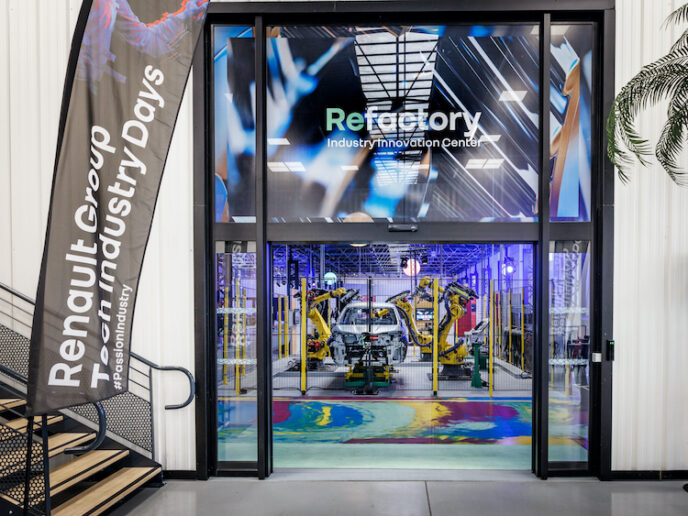
Renault Group says it is reaching a new step in its digital transformation by launching the first industrial Metaverse.
It is based on four dimensions: mass data collection, digital twins of processes, connecting the Supply Chain ecosystem and a set of advanced technologies.
Renault Group says 100% of its production lines are connected (8,500 pieces of equipment), 90% of supply flows are constantly monitored and 100% of Supply Chain data is hosted in the Metaverse, a true replica of the physical world controlled in real time.
Since 2016, digital technology has saved the Group 780 million Euro. By 2025, it will enable 320 million Euro in various savings, to which will be added 260 million Euro in savings on inventories, a 60% reduction in vehicle delivery time and a 50% reduction in the carbon footprint of its vehicle manufacturing.
There will also be a significant reduction in innovation cycles and a contribution to the 60% reduction in warranty costs targeted by the Group.
“Every day, a billion of data are collected within the Renault Group’s industrial sites. The Metaverse provides real-time supervision that increases the agility and adaptability of industrial operations as well as the quality of production and the Supply Chain,” says Renault Industry Group executive vice president Jose Vicente de los Mozos.
The Industrial Metaverse: four dimensions
To collect data from all its industrial sites, Renault Group has developed a unique data capture and standardisation solution, a platform for collecting mass data to feed the industrial Metaverse, and provide the levers for performance of the production process in real time. This solution is now marketed in partnership with ATOS to other industrial players, under the name of the ID@Scale project.
Renault Group then modelled its physical assets into digital twins. Each factory has its replica in the virtual world. Like the factories, the Supply Chain has its own digitised universe. It is an integral part of the industrial Metaverse and is also controlled in real time by a control tower.
The use of digital twins is enriched with supplier data, sales forecasts, quality information, but also exogenous information such as the weather or road traffic, etc., as well as Artificial Intelligence allowing the development of predictive scenarios.
The acceleration of this digital transformation is enabled by the convergence of advanced technologies (Cloud, real time, 3D, Big data…). Renault Group says it has developed a unique platform for the convergence of the technologies needed to run the digital twins and their ecosystems in a resilient way.
Together, it says these four dimensions constitute a complete, persistent, and real-time industrial Metaverse.
The supervision offered by the Metaverse through a better visibility of the work environment allows Renault Group to gain agility and autonomy in decision making. Technologies from the world of gaming make user experiences more immersive. This is the case of painting training carried out in virtual reality. AI algorithms facilitate the ability of employees to anticipate, as do flow optimization and management functions for Supply Chain experts.
“The technological maturity of Renault Group allows the company to reach an important step in its digitalisation and transformation: the control of our data, the choice of advanced technologies, and the expertise of our teams are all levers to accelerate towards a Tech Company,” Renault information systems and digital executive vice president Frédéric Vincent says.
Renault Group says it is committed to being Net Zero Carbon by 2025 for the ElectriCity division and the Cléon plant, by 2030 for manufacturing sites in Europe, and by 2050 for all industrial facilities worldwide.








